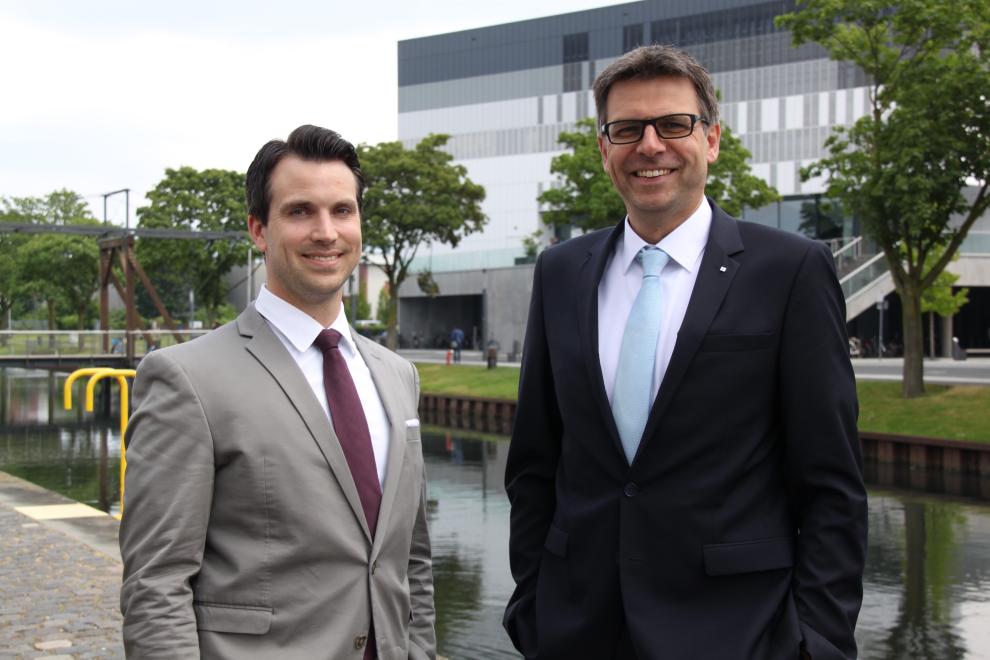New university president enters office
In February 2019, the Rhine-Waal University Electoral Assembly elected Dr Oliver Locker-Grütjen as the new president of Rhine-Waal University of Applied Sciences. The experienced research manager and Doctor of Philosophy has now officially entered into office for a term of six years. Among other objectives, President Locker-Grütjen intends to use this time to broaden the University’s internationalisation efforts as well as its regional and cross-border EUREGIO activities
As the new university president, Dr Oliver Locker-Grütjen fills an important vacancy and takes over for Professor Dr Eberhard Menzel, who had temporarily assumed the duties of office as acting university president until 31 May 2019. As university president, the 48-year-old Locker-Grütjen will both lead the University and be its face to the public. “I really look forward to the tasks that await me at Rhine-Waal University of Applied Sciences. Together with the other members of the Executive Board, I am keen to contribute to the University’s continued development. I particularly want to strengthen both the international diversity of the University, as well as its regional and euregional network,” stressed Dr Locker-Grütjen.
Dr Locker-Grütjen has held various posts at the University of Duisburg-Essen since 2003, most recently as Academic Director of the Science Support Centre (SSC) and as an executive member of the Vice-Rectorate for Research, Career Development and Science Transfer. Dr Locker-Grütjen has also worked as a consultant for strategic processes at universities and as an external expert for various programmes of the Federal Ministry for Education and Research and the Foundation of German Industry. Beyond strengthening Rhine-Waal University’s internationalisation strategies, its regional and euregional activities, and the regional bond of its students and alumni, President Locker-Grütjen also intends to promote more research, innovation and collaboration at the University. His plan includes more intensive collaboration with regional SMEs and providing additional support for spin-offs. “Our University must continue to engage in productive exchanges with regional and international partners, and stay abreast of current industry practices. This is essential for more applied research, for example. This approach also makes it much easier to find useful practical applications for research findings,” explained Dr Locker-Grütjen.
Chancellor Michael Strotkemper also emphasised the importance of a transfer mindset: “As a university of applied sciences, practical relevance is one of our main missions. The non-academic staff will certainly lend its support to Dr Locker-Grütjen’s efforts on that front. I look forward to working with him and, together with the other members of the Executive Board, I am confident that we will accomplish many goals.”

